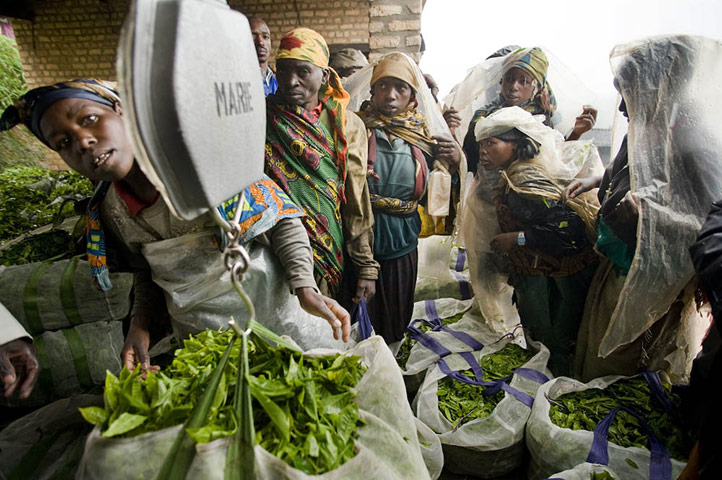Organic tea
 I was at the Mercer Gallery in Harrogate last week, which is currently showing an exhibition of photographs from Rwanda tea plantations (sponsored by local tea company Taylors). Many of the pictures were beautiful and interesting, but the exhibition troubled me. The problem is mostly the inevitable othering of the sociological gaze, and it plays out in a particularly interesting way here. In the background of the exhibition is the conceit that we can gain access to the lived experience of southern Rwandans (encompassing the intimate details of home life and expanding to the consequences of the genocide) by tracing the process of tea production (which utterly dominates the economy). This idea is not so uncommon, and is appealing and on the face of it kind-of Marxist, but the more I think about it the more problematic it seems.
I was at the Mercer Gallery in Harrogate last week, which is currently showing an exhibition of photographs from Rwanda tea plantations (sponsored by local tea company Taylors). Many of the pictures were beautiful and interesting, but the exhibition troubled me. The problem is mostly the inevitable othering of the sociological gaze, and it plays out in a particularly interesting way here. In the background of the exhibition is the conceit that we can gain access to the lived experience of southern Rwandans (encompassing the intimate details of home life and expanding to the consequences of the genocide) by tracing the process of tea production (which utterly dominates the economy). This idea is not so uncommon, and is appealing and on the face of it kind-of Marxist, but the more I think about it the more problematic it seems.
The problem is the way in which this kind of implicit sociology makes a move towards a premature totalization. The sequence of photographs conjure up a production process, and the society it is embedded within, as a closed and fixed whole, something which can be encompassed, and explained, by the exhibition. The exhibition provides its own metonym for this process in a picture of the cyprus trees growing at the edge of one of the tea plantations, viewed from the factory yard in which the cyprus wood is stacked up prior to being used to fuel the drying and fermenting of the tea: the whole production process is represented as an organic whole which grows its own preconditions from the soil. The falsity of this closure is particular visible in this exhibition, which wouldn’t exist without the funding that derives from the profit Taylors makes selling the tea grown in this area around the world.
This premature totalization separates us from Rwandan tea production in two ways. One is by suggesting that we are unimplicated in it, except perhaps to the extent we choose to involve ourselves philanthropically; the world market of course renders that false. The other way this presentation separates us from Rwandan tea growers is perhaps a bit more subtle, but perhaps also more harmful. This system of social production is something we tend to only see when we are being shown other societies, which works to make the systematic nature of production in our own societies invisible. As I walked around the Mercer Gallery, I imagined a ghost exhibit on the same walls, a series of photographs purporting to explain to us the UK through the interlinked economic process of call centers and mobile phone shops.